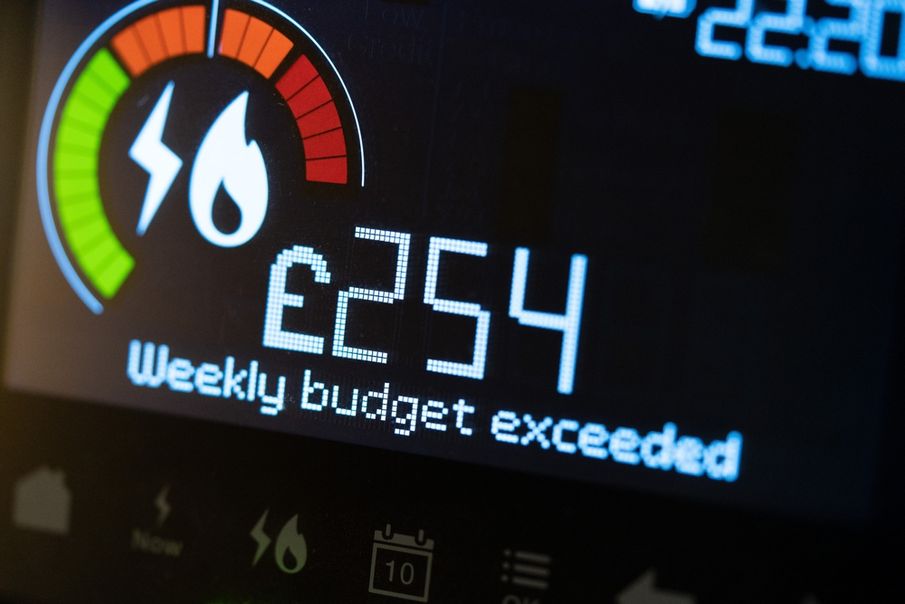It's easy to feel hopeless right now. From supporting others to taking action, here are five things you can do that really can make a difference
The cost of living crisis is weighing heavily on many minds at the moment, and with the 24-hour news cycle that washes up story after story of frightening, stress-inducing, and draining news, it’s easy to fall into a pit of hopelessness and despair.
Whether it be anger, confusion, or any other emotion, those feelings are completely justified. We’re living through a time of uncertainty – with barely a pause to breathe after the last time of uncertainty. We don’t know when things might start to look up, and many of us are facing fears about what the future holds for ourselves, our loved ones, and the people around us.
On an individual level, there is no simple solution. No magic red button that we can press to make all those feelings go away. No one money-saving tip will solve all the problems. But there are micro-steps that we can take, to be there for our communities, and to take action in small yet meaningful ways. Here, we’re exploring five options.
1. Volunteer your time
Your first thought when it comes to volunteering your time in order to tackle the cost of living crisis, might be of food banks and community food poverty action groups. While those causes are very worthy, and volunteers and donations are very needed, volunteering comes in so many shapes and sizes, and there will be a role out there that will be suited to your particular skills and talents.
It might be volunteering to be a driver for social groups, befriending schemes for the elderly, environmental and conservation action groups, and there are also many digital volunteering options out there, too, like getting involved in digital communication and social media.
The effects of poverty run deeper than just the practicalities of getting by each day. Feelings of isolation and exclusion both play a prominent role in money problems. Volunteering your time is a way to support the wellbeing of those around you and, of course, yourself, too.
Find volunteering opportunities by visiting doit.life.
2. Support campaign groups
The truth is, not everyone has the time to get involved on the ground. Caring responsibilities, high-pressure work environments, health, and general overcommitment mean that you can sometimes feel stuck on the sidelines – but that isn’t necessarily a bad place to be.
There are many fantastic campaign groups out there, advocating for those in need, and putting pressure on those in power to take action. The power of social media means that we’re able to get involved with such campaigns even when we’re poor on time and resources. Reading articles, sharing resources, showing support for causes – it all adds up.
You can find both local and national campaign groups by searching online and on social media. Does a particular message of a group resonate with you? Pass the information on, and spread the word.
3. Find out what’s happening where you live
Do you know where the local food bank is? And are you aware of how and when they take donations – and the specific items they’re in the need of? Are there plans to create ‘hot spots’ in your community? Spaces where those living in fuel poverty can come to be warm during the day? How about clothes swaps? Toy swaps? Bartering groups? Car sharing?
Local community social media groups are a hive of information when it comes to grassroot action. So, if you’re not sure what’s on, ask the question. You might discover that your investigation is the spark that gets a new idea rolling.
4. Reach out to your local MP
It can be very easy to overlook the fact that your local MP works for you, and that you can, and should, make them aware of concerns that you have – both on a national and local level.
Not sure what to write? Many campaign groups and charities offer letter templates, that you can copy and adjust to suit your needs – and which give you a good idea of how to express your concerns and might also offer links to more information.
If you don’t know who your local MP is, you can search your postcode on theyworkforyou.com, where you can also find their voting record, to get an idea of how they tend to vote in parliament, and where their priorities are.
5. Know that you can take a break
When feelings of hopelessness hit, one reaction is to get immediately stuck into taking action. Of course, doing so can make a huge difference – and following the suggestions above are all ways that you can create change and systems of support in your community. But you as the individual are not solely responsible for solving the world’s problems, something that can be easy to forget, sometimes.
If you’re overwhelmed by the news, take a break. You can come back to it, and pick it up again later. You don’t need to carry the weight of the world on your shoulders, in fact, you explicitly shouldn’t do that. By getting involved with causes and campaigns local to you, you’ll soon come to realise the power of community, and the things that can be achieved when we lift each other up, and work together.


Comments